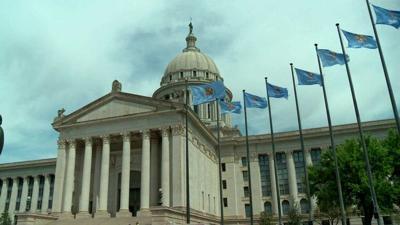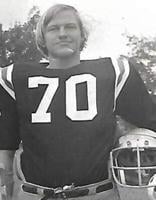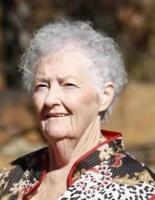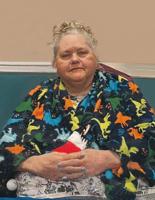OKLAHOMA CITY — A state lawmaker wants to require every public school library to purchase a King James Bible, and mandate that educators use it as the primary text when teaching elective courses on the Old and New Testaments.
However, one renowned biblical scholar said Wednesday that no one would ever use the King James version for a serious course in biblical studies because experts have learned so much about the Bible in the centuries since it was published and there are more accurate translations.
In a press release, state Sen. George Burns, R-Pollard, doubled down on his proposal because he said the King James version influenced America’s Founding Fathers, and he said Senate Bill 1161 will ensure its use in courses involving Hebrew scriptures and the New Testament.
“Our Founding Fathers relied heavily upon the scriptures in the formation of our country, and the Bible they used was the King James Bible, which makes it an important historical document,” said Burns, in a statement Wednesday. “It influenced the writing of the major documents that created this country, including the Constitution. It’s historically accurate to use that version, and it is in the public domain, which is also important.”
He did not return a message left seeking comment Tuesday about the wisdom of requiring a text that is considered by scholars to have a complicated and outdated translation.
Dr. Daniel L. Smith-Christopher, a professor of theological studies at Loyola Marymount University in California, who specializes in Old Testament studies and theology, said in an email that he’s never understood “the obsession amongst some folks with regard to the King James Bible,” which was published in the 17th century.
“Would you go to a medical doctor who learned medicine from books written in the 17th century?” he asked. “We have learned so much about the Bible since 1611, and especially ways to translate it more accurately and with more confidence.”
Smith-Christopher, who has authored more than a dozen books, said the Dead Sea Scrolls, for instance, advanced Old Testament and Hebrew scholarship, but were not discovered until the late 1940s. Other discoveries have had major impacts on understanding the Greek, Aramaic and Hebrew portions of the Bible, and the meaning of English words has also changed over time.
“Furthermore, the simple truth is that the KJV is filled with mistakes,” Smith-Christopher said. “Of course, the language is very pretty, but for that same reason it is often very hard for modern students to understand.”
He said the most common modern translations that are used by “serious students and Bible scholars” are the New Revised Standard Version (NSRV), the New American Bible (Revised) for Roman Catholics and the New International Version for Evangelical Protestants.
“I would simply never use the KJV for a serious course in biblical studies,” he said. “If I were teaching about the Bible and how it was read in the 17th and 18th centuries, on the other hand, then of course you would need to work with a translation that they were using then, but that’s the study of history, not biblical studies.”
Brett Farley, executive director of the Catholic Conference of Oklahoma, said that the Protestant, Catholic and Orthodox churches all have different versions of the Bible. The Catholic version has seven more books in the Old Testament than the Protestant version.
He said the Catholic Church is obviously going to favor the Catholic version of the Bible, but in general they support policies that promote reading instruction and teaching that are biblically based.
He said they also support biblical texts being widely available to students in all schools, public or private, and want students to have access to the texts of their faith traditions and their families. That’s particularly important for students who don’t have the resources to purchase their own Bibles.
“Bibles are not cheap, and so having access to those resources, based on where their tradition is or their parents’ preferences, would be most advantageous for them,” Farley said.
Cherity Pennington, president of the Oklahoma Library Association, said most school libraries typically have copies of the Bible along with other religious texts in their collections. She said collection decisions are guided in part by the age appropriateness of the materials and curriculum needs.
High school librarians, for instance, typically have a copy of the King James version of the Bible in their collections because of its strong influence on English literature. But middle school librarians who have students studying religion as part of a sixth or seventh grade social studies course would want copies of the Bible in multiple easier-to-read versions.
She said the King James Version is written at about a 12th grade reading level.
“School librarians are experts in collection development, and we welcome conversations with our legislators about how we make purchasing decisions,” Pennington said.
Janelle Stecklein covers the Oklahoma Statehouse for CNHI's newspapers and websites. Reach her at jstecklein@cnhinews.com.


















Commented
Sorry, there are no recent results for popular commented articles.